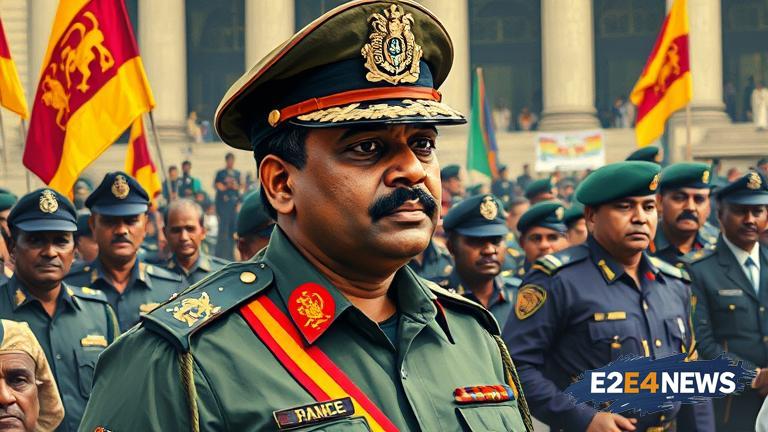Sri Lanka’s parliament has taken a significant step in addressing the ongoing protests and criticism of the government’s handling of the economic crisis by removing the police chief, Chandana Wickramaratne. The decision was made through a vote, with the majority of parliamentarians supporting the removal of Wickramaratne. The move is seen as a response to the growing unrest and dissatisfaction among the public, who have been protesting against the government’s policies and handling of the economy. The protests, which have been ongoing for several weeks, have been marked by clashes between protesters and police, resulting in injuries and arrests. The removal of Wickramaratne is expected to lead to a change in the leadership of the police force, which has been criticized for its handling of the protests. The government has been facing mounting pressure to address the economic crisis, which has led to shortages of essential goods, including food and medicine. The crisis has also led to a significant decline in the value of the Sri Lankan rupee, making it difficult for the country to import goods. The opposition has been calling for the resignation of the government, citing its failure to address the crisis. The removal of Wickramaratne is seen as a concession to the opposition and the protesters, who have been demanding changes in the government’s leadership. However, it is unclear whether the move will be enough to address the underlying issues and bring an end to the protests. The government has announced plans to appoint a new police chief, who will be tasked with restoring order and stability in the country. The new chief will face significant challenges, including addressing the grievances of the protesters and rebuilding trust between the police and the public. The international community has been watching the situation in Sri Lanka with concern, with many countries calling for calm and restraint. The United States, in particular, has expressed concern about the situation, urging the government to respect the rights of protesters and to address the underlying issues. The European Union has also issued a statement, calling for a peaceful resolution to the crisis. The removal of Wickramaratne is seen as a positive step towards addressing the crisis, but it is unclear whether it will be enough to bring an end to the protests. The government will need to take further steps to address the economic crisis and restore stability in the country. This may include implementing reforms, increasing transparency, and engaging in dialogue with the opposition and civil society. The situation in Sri Lanka remains fluid, with ongoing protests and uncertainty about the future. The international community will continue to monitor the situation, urging the government to respect the rights of protesters and to address the underlying issues. The removal of Wickramaratne is a significant development, but it is only one step towards addressing the crisis. The government will need to take further action to restore stability and address the grievances of the protesters. The economic crisis has had a significant impact on the country, with many businesses struggling to stay afloat. The tourism industry, in particular, has been affected, with many tourists canceling their trips to the country. The government will need to take steps to restore confidence in the economy and to attract investment. This may include implementing policies to support businesses, increasing transparency, and engaging in dialogue with the private sector. The situation in Sri Lanka is complex, with many different factors at play. The government will need to take a comprehensive approach to addressing the crisis, including addressing the economic, social, and political issues. The removal of Wickramaratne is a positive step, but it is only one part of a larger solution. The government will need to continue to work towards addressing the underlying issues and restoring stability in the country.





